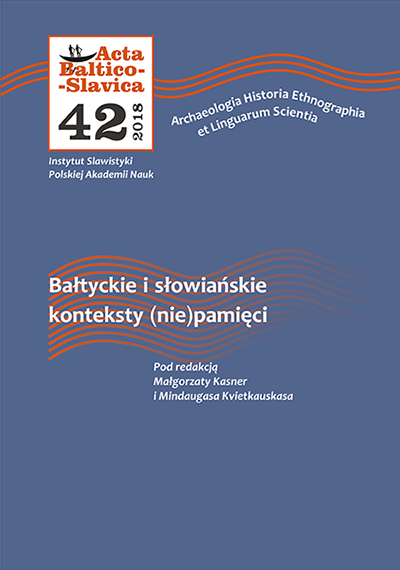Dychotomia pamięci w postkomunistycznej Bułgarii
The dichotomy of memory in post-communist Bulgaria
Author(s): Dorota Gołek-SepetliewaSubject(s): Anthropology, Cultural history, Post-Communist Transformation, Politics of History/Memory, Peace and Conflict Studies
Published by: Instytut Slawistyki Polskiej Akademii Nauk
Keywords: conflicts of memory; politics of memory; transformation; Bulgaria; collective memory; private memory;
Summary/Abstract: The democratic breakthrough of 1989 in Bulgaria has resulted in a clearly problem-oriented approach of society towards memory and the past. The process of developing an efficient model of reckoning with the traumatic heritage of communism divides the national community into dichotomous memory groups with their own understanding, assessment and modes of using the past. Developing a memory policy without a clear institutional support (Georgi Lozanov) oscillates between the attitudes of retribution and reconciliation (Ana Luleva, Svetla Kazalarska). Bulgarian society is characterised by a lack of remembrance of the past and its excess at the same time (Ivaĭlo Znepolski). The recent national past remains unprocessed, which results in the emancipation of private memory, characterised by the ability to overcome the impasse thanks to reliance on shared, non-conflicting, fragmentary memories of ordinary reality (Az zhiviakh sotsializma, I lived socialism, Georgi Gospodinov, et al.). As it is today, Bulgarian culture of memory is characterised by diverse collective memories, the multiplication of conflicts over the interpretation of the past and the fragmentation of memory, which leads to growing antagonisms and social crises.
Journal: Acta Baltico Slavica
- Issue Year: 2018
- Issue No: 42
- Page Range: 25-38
- Page Count: 14
- Language: Polish

